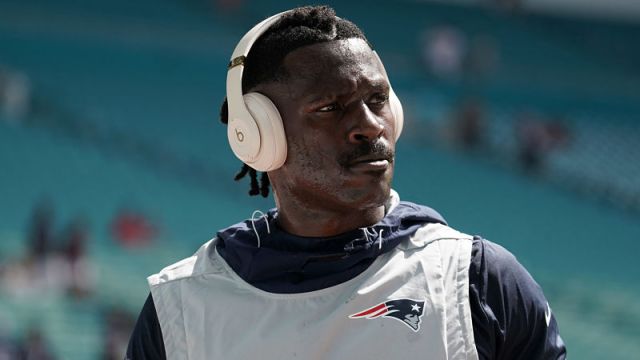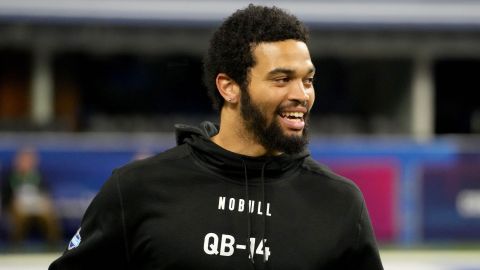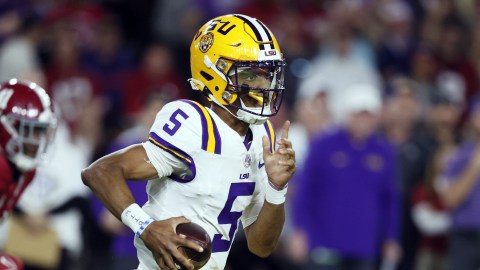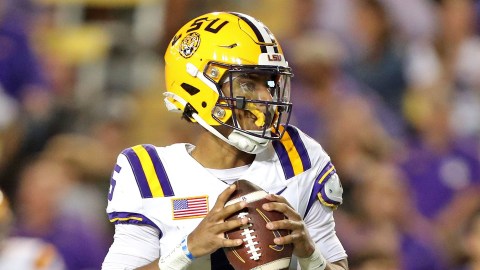For the first time in his unrivaled NFL career, Tom Brady will have an opportunity to sign with whichever team he pleases when his New England Patriots contract expires in March.
If the 42-year-old quarterback opts to leave New England, where might he fit? With the start of free agency still more than two months away, we’re taking a team-by-team look at some potential landing spots for the future Hall of Famer.
Next up: the Chicago Bears.
WHY IT MAKES SENSE
The Bears scored the fourth-fewest points in the NFL this season and still managed to win eight games. Replace Mitchell Trubisky with even a slightly above-average quarterback, and they’d be a playoff team — if not a Super Bowl contender.
Chicago’s defense, led by 2020 Pro Bowlers Khalil Mack and Eddie Jackson, is an elite unit that ranked fourth in points allowed and in the top 10 in most other prominent metrics despite getting just five games out of stud D-tackle Akiem Hicks. Its offense sputtered in Year 3 of the Trubisky era — remember when the Bears drafted this guy ahead of Patrick Mahomes and Deshaun Watson? — but has some nice pieces, most notably No. 1 receiver Allen Robinson and promising rookie running back David Montgomery.
From an off-the-field perspective, playing in a major market like Chicago would give Brady an excellent platform from which to spread his TB12 method and brand, which already are ubiquitous across New England. The prospect of leading a once-proud franchise like the Bears back to championship contention has to be enticing, too.
Bears general manager Ryan Pace has said the team is sticking with Trubisky as its starter in 2020, but that could always change.
WHY IT DOESN’T MAKE SENSE
For starters, the Bears might not be able to afford him. They currently have just shy of $21 million in projected salary cap space for 2020, according to Spotrac — seventh-least in the NFL and roughly half what the Patriots’ have — and would need to do some serious finagling in order to offer Brady even a competitive contract.
There’s also the question of fit. Bears coach Matt Nagy runs an offense that utilizes RPOs and other concepts that aren’t in the Patriots’ playbook and that Brady has little experience with. Would Brady be willing to learn an entirely new system at this point in his career? And would Nagy be willing to adapt his scheme to accommodate the aging signal-caller?
Brady also has no previous relationship with the Bears’ offensive brain trust of Nagy, new offensive coordinator Bill Lazor, new quarterbacks coach John DeFillippo and passing game coordinator Dave Ragone.
Chicago’s stable of skill-position players has some major question marks, as well, particularly at tight end.
The Patriots’ three tight ends combined for just 418 receiving yards in 2019. The Bears were somehow worse, getting just 416 yards out of the position. And that was split between six players, with top option Trey Burton catching just 14 passes for 84 yards and no touchdowns in eight games before landing on injured reserve.
Brady is at his best when he has one or more legit receiving threats at the tight end spot. The Bears currently have zero. And their lack of cap space would make it very difficult for Pace to sign Brady while also addressing their other roster needs.
VERDICT
Chicago would be a more desirable destination than most for a free agent QB, but in our view, the cons (minimal cap space, unfamiliar offense, zero tight end production) outweigh the pros (Super Bowl-caliber defense, major market, premier franchise) for Brady.






